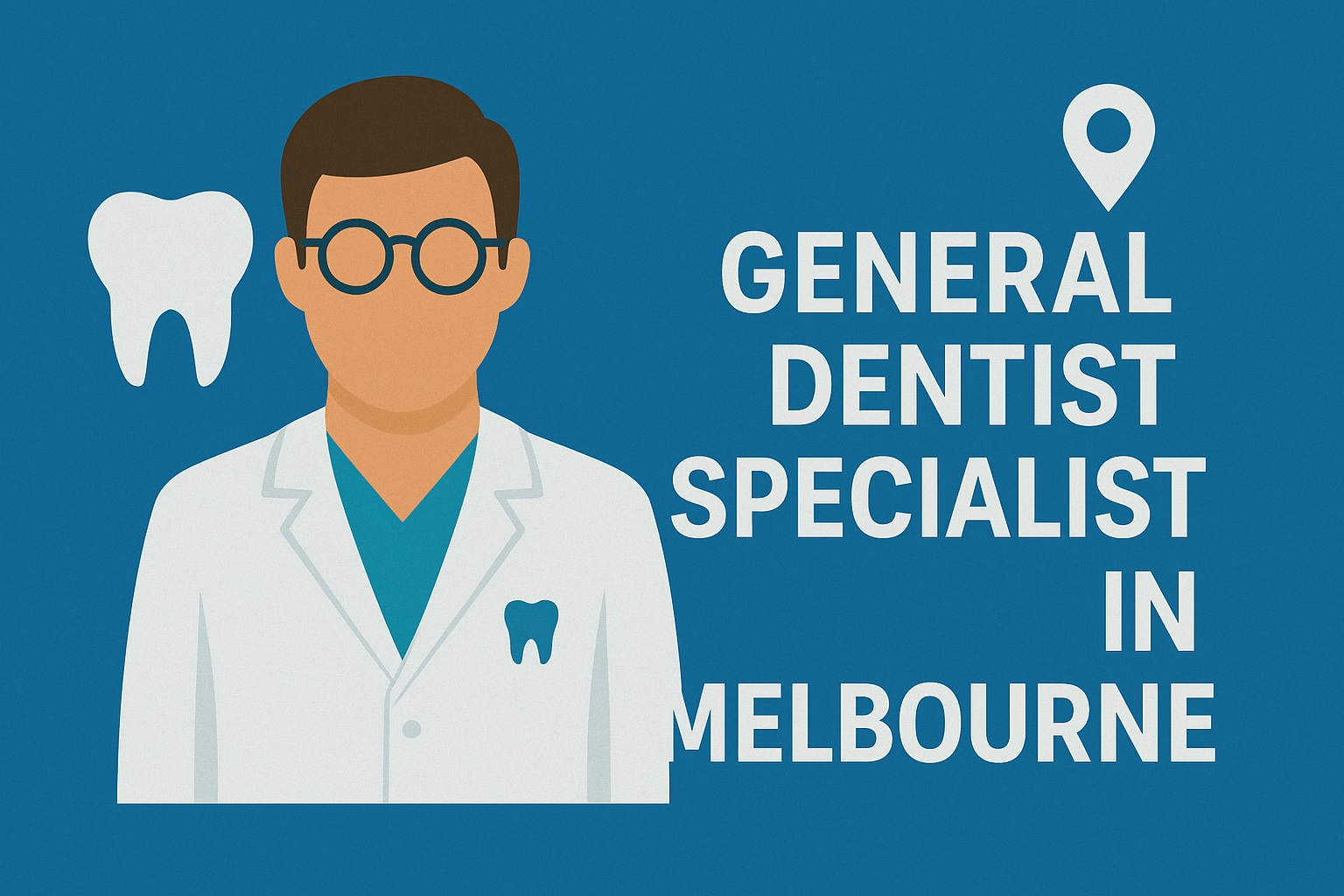When it comes to taking care of your oral health, one of the most important decisions you will face is whether to see a general dentist or a specialist. Both types of dental professionals play an important role in maintaining your dental well-being, but they offer different services and areas of expertise.
Understanding the differences between the two and when to choose each one can help you make an informed decision about your dental care.
What Is a General Dentist?
A general dentist is often the first point of contact for most patients when they seek dental care. General dentists provide a broad range of services, including routine check-ups, cleanings, fillings, preventive care, and minor treatments. They are trained to manage a wide variety of dental concerns and can treat patients of all ages.
In addition to basic care, general dentists often handle cosmetic procedures, such as teeth whitening, veneers, and minor restorative work. They are also skilled in managing common dental conditions like gum disease, cavities, and tooth sensitivity.
For people living in areas like Preston, a dentist Preston will typically offer these general services, making them a convenient and reliable option for routine visits and minor dental issues. They are your go-to professional for regular cleanings and maintenance of your overall oral health.
What Is a Dental Specialist?
A dental specialist is a dentist who has completed additional training and education in a specific area of dentistry beyond the basic dental degree. Specialists typically focus on more complex cases that require advanced skills and knowledge. There are several types of dental specialists, including:
Orthodontist
An orthodontist specialises in diagnosing, preventing, and treating misaligned teeth and jaws. If you or your child requires braces or other orthodontic treatment to straighten teeth, an orthodontist is the right choice. They use various devices to improve alignment, such as traditional braces, clear aligners, and retainers.
Periodontist
A periodontist focuses on treating the gums and the bones supporting your teeth. They are experts in managing gum disease, performing gum surgeries, and addressing issues such as receding gums or severe bone loss.
Endodontist
An endodontist specialises in the treatment of the inner parts of the teeth, particularly the root canals. If you need a root canal treatment to save a tooth, an endodontist has the expertise to handle this procedure with precision and care.
Oral Surgeon
An oral surgeon is a specialist who performs surgical procedures on the mouth, jaw, and face. This can include tooth extractions, corrective jaw surgery, and treatment of traumatic injuries or facial deformities. Oral surgeons also perform more complex procedures, such as dental implants and wisdom teeth removal.
Prosthodontist
A prosthodontist focuses on the restoration and replacement of teeth. If you need dentures, dental implants, crowns, or bridges, a prosthodontist can provide you with the best options for replacing missing or damaged teeth.
Each of these specialists has advanced training in their specific field, making them the best choice for handling complex dental issues that go beyond the scope of general dentistry. However, it’s important to note that a general dentist will often refer you to a specialist when a situation arises that requires more expertise.
When Should You See a General Dentist?
A general dentist should be your first stop for most dental care needs. They are trained to handle routine procedures and can treat common dental problems, such as:
- Regular cleanings and check-ups
- Fillings for cavities
- Minor cosmetic treatments (e.g., teeth whitening, veneers)
- Basic restorative procedures (e.g., crowns, bridges)
- Treatment for gum disease (e.g., scaling and root planing)
- Preventive care and advice
If you have any concerns about your teeth or gums, it’s always a good idea to start with a general dentist. They will assess your condition and provide treatment or refer you to a specialist if needed.
When Should You See a Specialist?
You should see a dental specialist when your oral health concerns require more specific expertise. Here are some scenarios when a specialist might be necessary:
- You need braces or aligners for crooked teeth (Orthodontist).
- You have severe gum disease or gum recession (Periodontist).
- You need a root canal or have an issue with the tooth’s pulp (Endodontist).
- You require surgery for tooth extraction, facial trauma, or jaw realignment (Oral Surgeon).
- You need dentures, implants, or crowns to replace missing teeth (Prosthodontist).
While a general dentist can handle most routine dental needs, a specialist is the best choice when the situation is more complex or when specialised training is required.
Choosing between a general dentist and a specialist ultimately depends on your oral health needs. A general dentist can handle most routine care, while a specialist is better suited for more complex treatments. By understanding the roles of both general dentists and dental specialists, you can make informed decisions about your oral health care and ensure that you and your family receive the best possible treatment for your needs.

